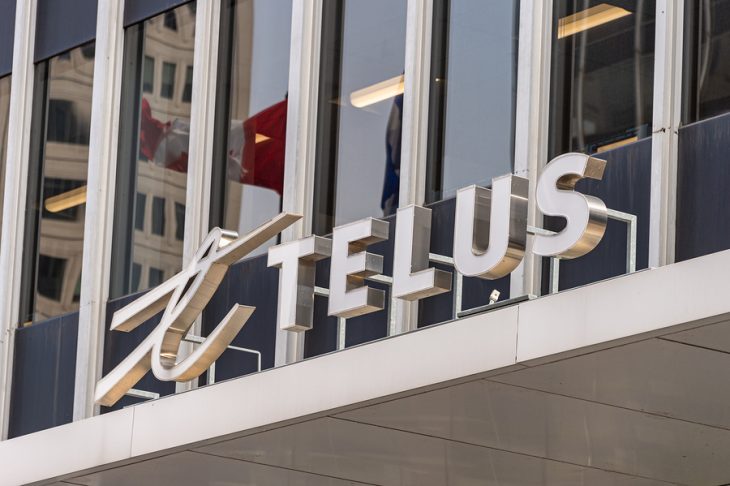
By Ahmad Hathout
VANCOUVER – Telus CEO Darren Entwistle said Friday the company’s roll-out of 5G technology, which now has 150,000 subscribers, isn’t based on necessity because its current generation of wireless technology is presently the best available.
“It’s not a situation where we’re deploying 5G out of necessity when we’re already leading the world on wireless speeds, coverage and reliability with our 4G networks,” Entwistle said during a third quarter conference call. “Our 4G technology is beating 5G technology in other jurisdictions as it relates to speed, coverage and reliability, which is an exceedingly good position to be winning on 4G and beating other jurisdictions on 5G as we begin to scale and amplify our 5G footprint across the Canadian landscape.”
The next big thing in wireless technology is said to significantly improve speed and latency, a measure of how quickly a device receives and delivers data. The Vancouver-based company argued that its 4G network speeds not only beat its Canadian competitors, but they also beat the 5G speeds of the top carriers in the United States as well.
Telus’s 5G network currently encompasses 34 markets, covering 22% of the Canadian population, with theoretical download speeds of 1.7 Gbps. Entwistle said the company’s goal by the end of the year is to hit 50 markets for about 30 per cent of the population at a speed closer to 2 Gbps. Rogers currently has the 5G coverage lead, having rolled out into 130 communities so far.
Entwistle set up his comments by boasting in the call’s opening about the company’s fibre infrastructure — which 5G will harness — which he said continues to top speed surveys, including in PCMag this summer with mentions from Ookla and Tutela. The CRTC said recently that the major Canadian carriers are delivering as-advertised broadband speeds.
The remarks also come a week after Paul McAleese, president of Shaw’s Freedom Mobile, said he was disappointed by competitors’ pricing strategy for 5G because they haven’t shown a need for it. Others have been warning about the hype surrounding 5G.
Entwistle said Friday that the Covid pandemic is helping create scenarios that justify it. “Covid has,” Entwistle said, “provided a digital acceleration, which is going to expand the use cases as both businesses and consumers seize the digital transformation thesis.” He did not elaborate on what use cases are now more apparent.
Telus executives also spent time drawing analyst attention toward initiatives it said will go to illustrate the strength of its networks — namely, in the agricultural, health and transportation technology fields. Entwistle said the company is excited to see how 5G will leverage those areas for future growth opportunities.
The west coast company also announced Friday the purchase of Lionbridge AI through Telus International, which the company said is expected to make an initial public offering early next year. The product, which develops artificial intelligence algorithms, will add to the company’s suite of services that extends its focus on software and digital.
The country’s major carriers have been clamouring for more spectrum to roll-out 5G, or else they’ll trail the world. Rogers head Joe Natale previously noted in a conference call that the race to 5G was not versus carriers in Canada but against other countries.
Apple’s latest iPhone, which includes 5G technology, is slated to roll-out later this month. Telus said they’ve seen very strong pre-orders numbers for the new device, at a rate of double over the same period last year when the last iPhone was released.
Compared to the same period last year, the company added 111,000 net wireless phone subscribers — the company does not parse post and pre paid subscribers anymore — which it calls “quality” loads because it doesn’t include other lower revenue-generating devices like tablets. The company’s mobile phone defection rate — churn — was again below one per cent for the third-straight quarter.
Canaccord Genuity analyst Aravinda Galappatthige said in a note that the 111,000 figure beat its 90,000 estimate for the quarter, but it was flat compared to last year.
It added 50,000 internet and 19,000 TV subscribers in the quarter compared to the same period last year — both at or below one per cent churn.
Revenue improved over the year by 7.7 per cent for $4 billion in the quarter, but net income declined over the year by 27 per cent to $321 million largely from the impact of the pandemic.
For more, please click here.


